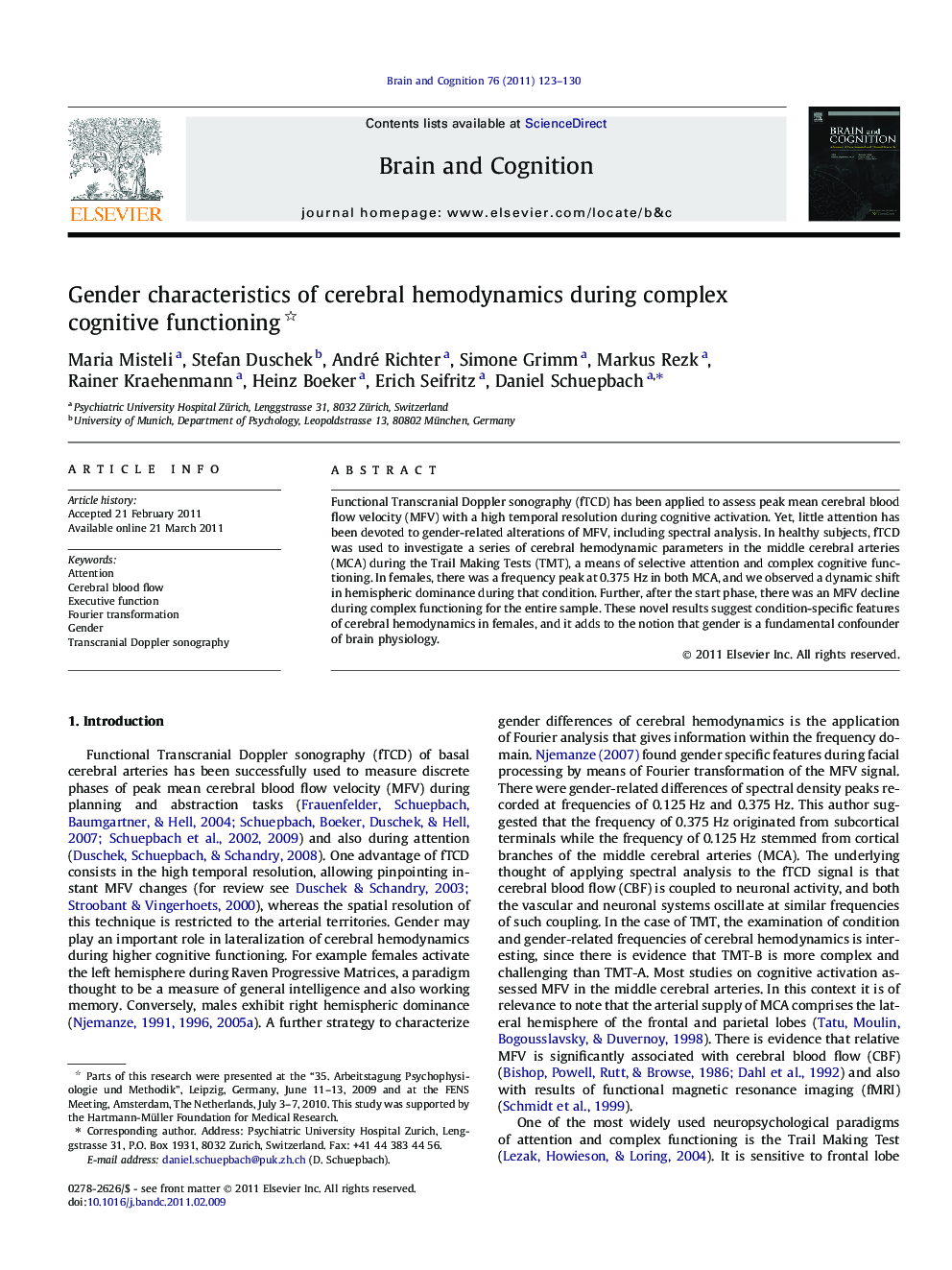| Article ID | Journal | Published Year | Pages | File Type |
|---|---|---|---|---|
| 924227 | Brain and Cognition | 2011 | 8 Pages |
Functional Transcranial Doppler sonography (fTCD) has been applied to assess peak mean cerebral blood flow velocity (MFV) with a high temporal resolution during cognitive activation. Yet, little attention has been devoted to gender-related alterations of MFV, including spectral analysis. In healthy subjects, fTCD was used to investigate a series of cerebral hemodynamic parameters in the middle cerebral arteries (MCA) during the Trail Making Tests (TMT), a means of selective attention and complex cognitive functioning. In females, there was a frequency peak at 0.375 Hz in both MCA, and we observed a dynamic shift in hemispheric dominance during that condition. Further, after the start phase, there was an MFV decline during complex functioning for the entire sample. These novel results suggest condition-specific features of cerebral hemodynamics in females, and it adds to the notion that gender is a fundamental confounder of brain physiology.
► Functional Transcranial Doppler sonography during complex cognitive functioning. ► Gender aspect of brain perfusion in the time and frequency domain. ► Females with a frequency peak at 0.375 Hz in both middle cerebral arteries. ► Dynamic shift in hemispheric dominance. ► Gender-specific features of cerebral hemodynamics.
